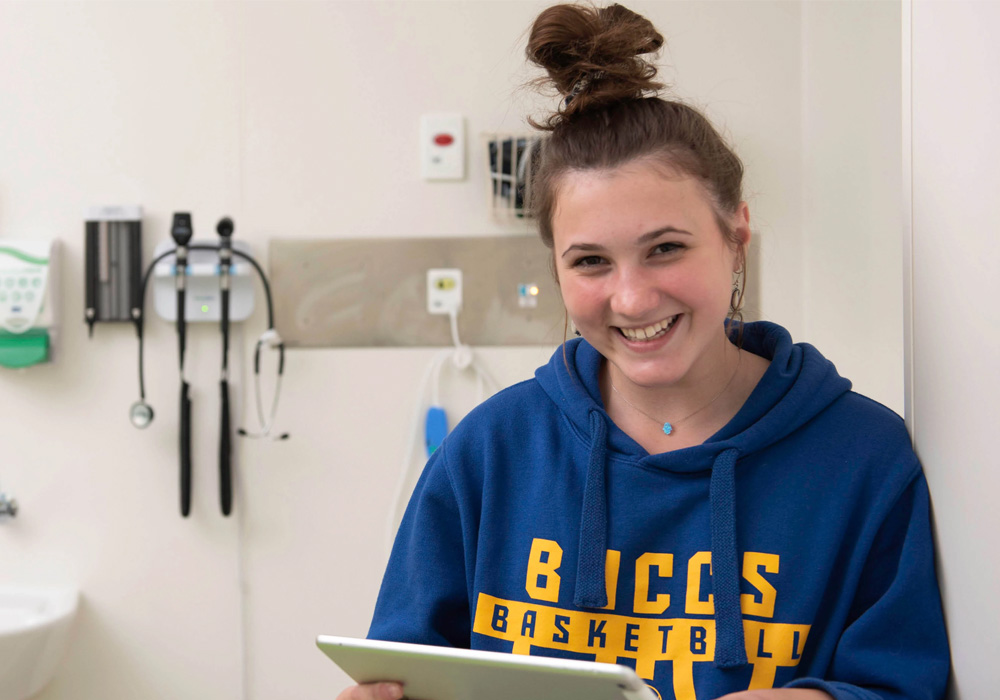Search

The Infectious Disease Implementation Research Team is a multi-disciplinary group researching the best way to implement infectious disease prevention and treatment strategies to improve the wellbeing of children and teenagers.
Research
Morbidity due to acute lower respiratory infection in children with birth defects: A total population-based linked data studyChildren with birth defects experience higher rates of hospitalisation for ALRIs before age 2 years than children with no birth defects.
Research
Safety and Tolerability of V114 Pneumococcal Vaccine in Infants: A Phase 3 StudyDisease caused by Streptococcus pneumoniae is associated with considerable morbidity and mortality in children. Pneumococcal conjugate vaccines are well tolerated and effective at reducing pneumococcal disease caused by vaccine serotypes. VAXNEUVANCE (V114) is a 15-valent PCV containing 13 serotypes in Prevnar 13, plus serotypes 22F and 33F. This large phase 3 study evaluated safety and tolerability of V114 in infants.
Research
Randomized Trial of BCG Vaccine to Protect against Covid-19 in Health Care WorkersThe bacille Calmette-Guérin (BCG) vaccine has immunomodulatory "off-target" effects that have been hypothesized to protect against coronavirus disease 2019.
Research
High Nasopharyngeal Carriage of Non-Vaccine Serotypes in Western Australian Aboriginal People Following 10 Years of Pneumococcal Conjugate VaccinationInvasive pneumococcal disease (IPD) continues to occur at high rates among Australian Aboriginal people.
Research
Short Message Service Reminder Nudge for Parents and Influenza Vaccination Uptake in Children and Adolescents with Special Risk Medical Conditions: The Flutext-4U Randomized Clinical TrialChildren with chronic medical conditions are at increased risk of severe influenza. Uptake of influenza vaccination in children and adolescents with these identified special risk medical conditions is suboptimal.
Research
Safety and Immunogenicity of Neonatal Pneumococcal Conjugate Vaccination in Papua New Guinean Children: A Randomised Controlled TrialWe conducted an open randomized controlled trial in Papua New Guinea to compare safety, immunogenicity and priming for memory of 7-valent PCV (PCV7) given in...
Research
Association between maternal influenza vaccination and neurodevelopmental disorders in childhood: a longitudinal, population-based linked cohort studyTo assess the association between in utero exposure to seasonal inactivated influenza vaccine (IIV) and the risk of a diagnosis of a neurodevelopmental disorder in early childhood.
Research
Association between early bacterial carriage and otitis media in Aboriginal and non-Aboriginal childrenStreptococcus pneumoniae (Pnc), nontypeable Haemophilus influenzae (NTHi) and Moraxella catarrhalis (Mcat) are the most important bacterial pathogens...
Research
Tracking of activated cTfh cells following sequential influenza vaccinations reveals transcriptional profile of clonotypes driving a vaccine-induced immune responseA vaccine against influenza is available seasonally but is not 100% effective. A predictor of successful seroconversion in adults is an increase in activated circulating T follicular helper (cTfh) cells after vaccination. However, the impact of repeated annual vaccinations on long-term protection and seasonal vaccine efficacy remains unclear.
Research
Respiratory viral pathogens associated with lower respiratory tract disease among young childrenAcute lower respiratory tract infections (ALRI) commonly result in fatal outcomes in the young children of Papua New Guinea (PNG).
Research
Lessons learnt from influenza vaccination in immunocompromised children undergoing treatment for cancerInfluenza infection contributes substantially to global morbidity and mortality, with children undergoing treatment for cancer among the most vulnerable due to immunosuppression associated with disease and treatment. However, influenza remains one of the most common vaccine-preventable diseases.
Research
Prevalence of and risk factors for human rhinovirus infection in healthy aboriginal and non-aboriginal western australian childrenHuman rhinovirus (HRV) species C (HRV-C) have been associated with frequent and severe acute lower respiratory infections and asthma in hospitalized children.
Research
Topical versus systemic antibiotics for chronic suppurative otitis mediaChronic suppurative otitis media (CSOM), sometimes referred to as chronic otitis media (COM), is a chronic inflammation and often polymicrobial infection (involving more than one micro-organism) of the middle ear and mastoid cavity, characterised by ear discharge (otorrhoea) through a perforated tympanic membrane. The predominant symptoms of CSOM are ear discharge and hearing loss. Antibiotics are the most common treatment for CSOM, which act to kill or inhibit the growth of micro-organisms that may be responsible for the infection.
Research
Clinician-rated quality of video otoscopy recordings and still images for the asynchronous assessment of middle-ear diseaseVideo otoscopy plays an important role in improving access to ear health services. This study investigated the clinician-rated quality of video otoscopy recordings and still images, and compared their suitability for asynchronous diagnosis of middle-ear disease. Two hundred and eighty video otoscopy image-recording pairs were collected from 150 children (aged six months to 15 years) by an ear, nose, and throat (ENT) specialist, audiologists, and trained research assistants, and independently rated by an audiologist and ENT surgeon.
Research
Djaalinj Waakinj (listening talking): Rationale, cultural governance, methods, population characteristics–an urban Aboriginal birth cohort study of otitis mediaThe majority of Australian Aboriginal and Torres Strait Islander (hereafter referred to as “Aboriginal”) people live in urban centres. Otitis media (OM) occurs at a younger age, prevalence is higher and hearing loss and other serious complications are more common in Aboriginal than non-Aboriginal children. Despite this, data on the burden of OM and hearing loss in urban Aboriginal children are limited.
Research
Aural toilet (ear cleaning) for chronic suppurative otitis mediaChronic suppurative otitis media (CSOM), sometimes referred to as chronic otitis media (COM), is a chronic inflammation and often polymicrobial infection (involving more than one micro-organism) of the middle ear and mastoid cavity, characterised by ear discharge (otorrhoea) through a perforated tympanic membrane.
